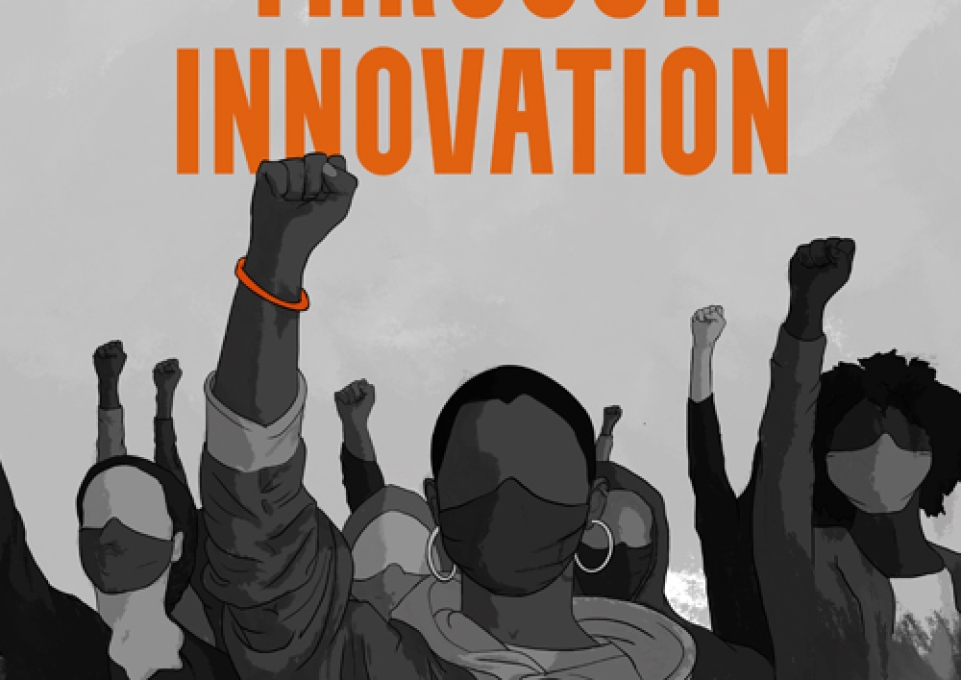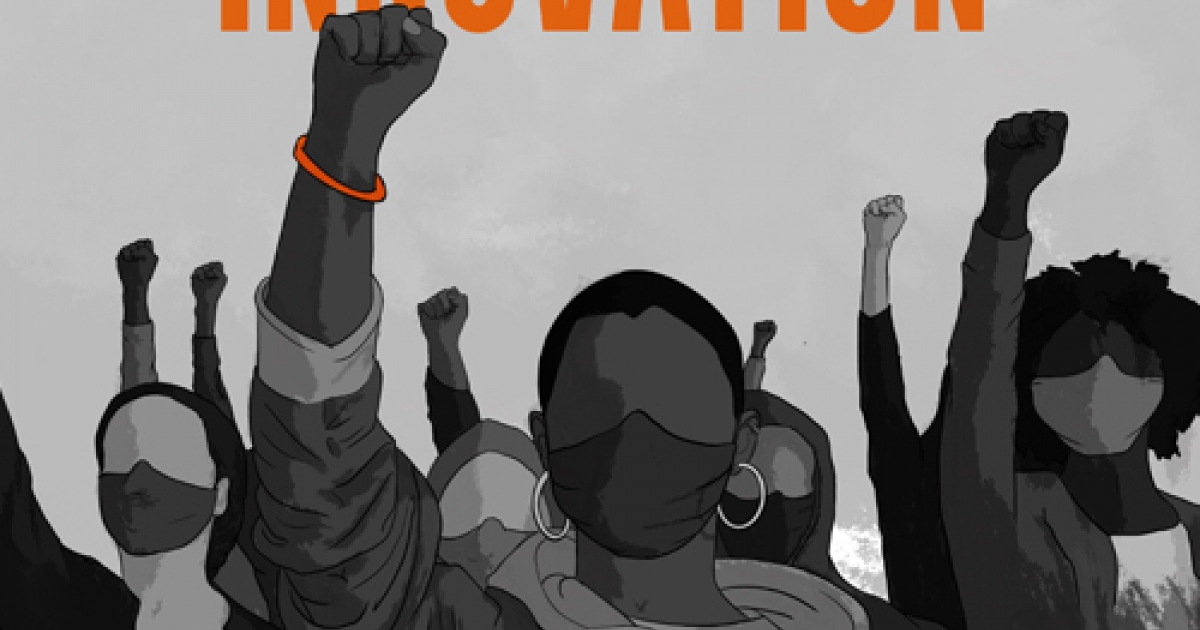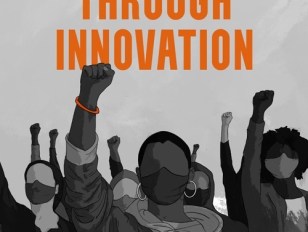
Buffalo State College’s 2020 Anne Frank Project (AFP) reflects the challenges of a year consumed by a deadly pandemic and worldwide protests over police brutality and other instances of racial injustice. The theme for the 12th annual social justice festival taking place remotely October 13–15 is “Transformation through Innovation.”
Although this year’s theme ties in seamlessly with current issues and causes, it was actually conceived before many of the events that have defined this year, according to Eve Everette, AFP assistant director.
“This theme really came from the college’s push for innovative, engaging educational experiences on and off campus,” Everette said, “because of our service-learning and interdisciplinary projects.”
To follow social distancing guidelines, the free interactive festival will be held via BlueJeans video conferencing on the AFP site and AFP Instagram Live.
Everette, AFP’s founding director Drew Kahn, and a host of partners within and outside the campus community have leveraged the theme into an opportunity to promote a unifying safe space during a time when distance, both physical and theoretical, has driven many people apart.
In fact, the festival’s virtual format will bring people together in ways that weren’t possible in the past because of budgeting and geographical location, Everette pointed out. For example, a session on transformative learning through virtual exchange will be hosted by contributors from EDU Africa and the Lari Memorial Peace Museum in Kenya. And LaToya Ebony, an actress and influencer based in Los Angeles, California, will lead a presentation on the history and pride of natural hair among people of African descent.
“As artists and educators, it’s our responsibility to build a story to help people navigate the challenges that face us right now. The festival is a great place to ask big questions and to take the time to figure out where our identities fit within all of the upheaval.”
“This year’s remarkably remote festival can bring meaningful, unique student-centered content to the often stagnant and unsatisfying remote learning environments we have been forced into this year,” Kahn said. “AFP 2020 can offer fresh, challenging ideas from special places to liven things up in the remote classroom.”
Several artists, educators, social activists, and others will unite for different methods of storytelling and engagement over the three days. Viewers can participate in sessions such as Transformative Learning, Social Justice through Public Art, and Community Accountability in a State of Confusion. Presenters will incorporate many of the overarching subjects of 2020, including COVID-19, Black Lives Matter, storytelling through digital means, and healing through united causes.
“The pillars of AFP and the elements of storytelling are community building, conflict resolution, and identity exploration,” Everette said. “As artists and educators, it’s our responsibility to build a story to help people navigate the challenges that face us right now. The festival is a great place to ask big questions and to take the time to figure out where our identities fit within all of the upheaval.”
The BlueJeans technology will include closed captioning that will allow people of different abilities to have complete access to each presentation. Erasing the barriers of distance and accessibility have been positive aspects of the virtual format, Everette said; however, some elements that organizers and participants of past social justice festivals have enjoyed most may not translate in the same way as when sessions are held in a shared space.
“The personal interaction with students, with presenters, and with my colleagues is something I really miss,” she said. “I think everybody does. In past years, we created such a beautiful experience in the Social Hall. Participants came there to learn, absorb new information, and stretch themselves. I think they might have been more encouraged to try new things because they were around other people.”
On the other hand, Everette said, the virtual format has the potential to be just as effective in encouraging engagement because participants will be in the comfort of their own homes.
The AFP community views presentations as “one-third theory, two-thirds practice,” Everette said, meaning each presenter should allow and encourage participants to engage directly with them and each other through question-and-answer sessions, networking, or a hands-on activity. The virtual festival will be no exception to this approach.
“Many of the sessions this year are full-on workshops where you’re going to be asked to be up and moving, or you are writing or annotating with the presenters during breakout sessions,” Everette said. “Also, we are providing supplemental resources about the sessions and the presenters in the AFP 2020 program (PDF, 692 KB) if you want to dig deeper.”
During each session, two moderators will help participants foster connections and learn more about presenters and their content.
“I look at virtual storytelling as an active thing, as a blend of theater, television, and the classroom,” Everette said, “so I think it can be as effective as face-to-face contact if it’s curated well. When it comes to this kind of virtual storytelling for social justice, there needs to be an engagement aspect to it.”
Whether participants are attending the festival for the first time or returning, Everette offered advice on getting the most out of it.
“Choose one session that you know you’re going to connect with and that’s going to speak to your soul and your story,” she said. “Then choose another session that is very new and unfamiliar and get yourself into that conversation.
“Also, this is a time to listen and reflect,” she added. “So, if you’re the type of person who likes to step up and talk all the time, maybe listen and take a little step back. If you are a type of person who doesn’t always speak up, maybe you can encourage yourself to ask a few more questions, because this is a chance to stretch your story and to build yourself.”



